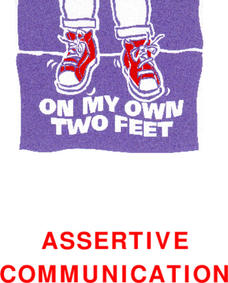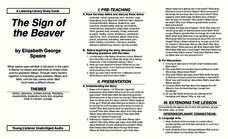Alabama Department of Archives and History
Nellie Bly to Dr. Peter Bryce: 19th Century Asylum Reform
What kind of treatment could a patient expect in an asylum during the 1800's? The abusive and neglectful conditions in 19th century asylums are the focus of a lesson that examines the work of reformers Nellie Bly, Dorothea Dix, and Dr....
Lions Clubs International Foundation
Mindful Self-Awareness Exercise: Building Self-Confidence
Encourage scholars to build self-confidence by thinking positively. Learners focus on breathing and then think of positive statements about themselves, their relationships, appearance, physical health, and so much more.
Overcoming Obstacles
Taking Tests
In a lesson designed to prepare scholars for taking tests, they begin with a review of how to plan and review notes. They Identify ways to prepare for upcoming tests and strategies for studying and memorizing information. Class members...
King Country
Lesson 3: Relationships - Day 1: Self-Esteem
A sense of belonging, of being capable, of being appreciated, and the role these feelings have in our self-esteem is the subject of the third lesson in a family life and sexual health unit.
Department of Education (Ireland)
Assertive Communication
Assertive communication is an acquired skill. Teaching young people to ask for what they need and to believe that they have a right to ask is at the core of a unit on assertive communication. Over the course of the unit, middle and high...
Nemours KidsHealth
Sportsmanship: Grades 3-5
Students complete activities regarding good sportsmanship. For this sportsmanship lesson, students discuss winning, losing, and cheating. They participate in Sportsmanship scenarios and discuss what they would do in each situation.
Nemours KidsHealth
Empathy: Grades K-2
Second graders read articles about being afraid, dealing with anger and apologizing. In this feelings instructional activity, 2nd graders read articles and discuss the feelings they have. Students describe their feelings and how to be...
PBS
Stories of Painkiller Addiction: The Cycle of Addiction
Drug addiction, including prescription drug addiction, begins with a reason that's different for every user. High schoolers learn more about the reasons people begin abusing drugs with a set of videos and worksheets that discuss four...
Global Oneness Project
Citizen Photojournalism
Matt Black's photo essay, "The Geography of Poverty" provides a shocking reminder of the poverty that exists in the United States. The resource not only focuses attention on poverty but also conditions that have given rise to situation...
Alabama Department of Archives and History
A Worse Death: War or Flu?
In a lesson that integrates history and mathematics, class members create graphs that compare military death statistics from World War I with those that resulted from the influenza pandemic of 1918.
National Endowment for the Humanities
Albert Sabin and Bioethics: Testing at the Chillicothe Federal Reformatory
Do the ends justify the means? Getting a drug approved in the US is a long and involved process. But at some point out, it involves testing on humans. The ethics of such testing is the focus of a resource that uses Dr. Albert Sabin's...
Florida Department of Health
Safe and Happy: Safety for All at School and Online Unit
Bystander or upstander and advocate? Three lessons have high schoolers investigating data about bullying and school safety. Participants then learn how to take a stand against bullying and use what they have learned to create a PSA to...
Florida Department of Health
Nutrition: Developing Healthy Habits Unit
The focus of the fourth unit in the Youth Risk Behavior Survey Curriculum is on healthy eating and exercise. Class members examine healthy habits data from the YRBD Youth Online Tool, learn about the importance of a healthy diet and...
Department of Education (Ireland)
Understanding Influences
"Understanding Influences," a richly detailed, carefully scaffolded unit, asks middle and high school scholars to examine how internal and external factors like friends, media, and society influence their attitudes and behaviors.
American Psychological Association
Developing Adolescents
Why to young people act the way they do? Scholars investigate the stages of adolescent development incorporating high school psychology techniques. Using research from the American Psychological Association, they uncover the five areas...
Listening Library
The Sign of the Beaver
Extend a class reading of the novel The Sign of the Beaver across all subject areas with this literature unit guide. From basic discussion questions and writing prompts, to a research project about tracking animals, this resource offers...
King Country
Lesson 9: Communication - Day 2: Assertiveness
Appropriate assertive and non-verbal assertive communication is the focus of this lesson designed for the special education classroom. Using mirrors, class members practice assertive responses to a variety of situations.
King Country
Lesson 8: Communication - Day 1: Non-Verbal Communication
As part of their study of communication skills, class members practice using verbal and non-verbal techniques to appropriately express their feelings.
King Country
Lesson 10: Communication - Day 3: Asking for What You Want
High schoolers practice appropriate verbal and non-verbal methods of asking for what they want in a lesson designed for the special education classroom.




















